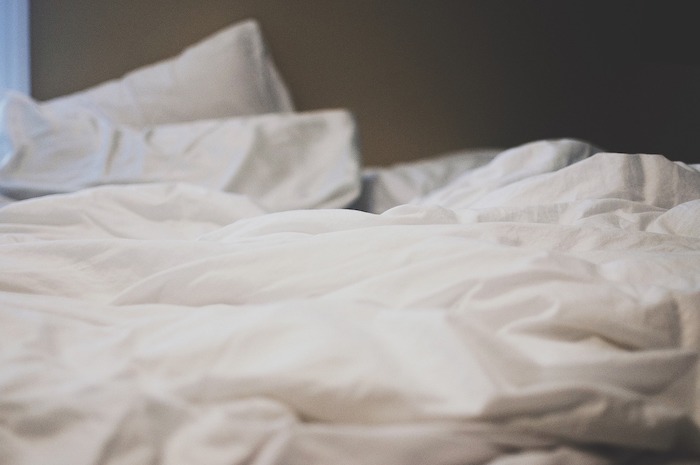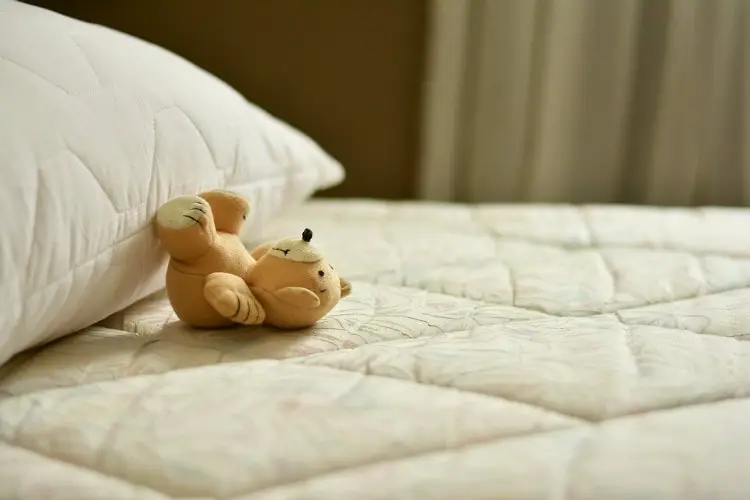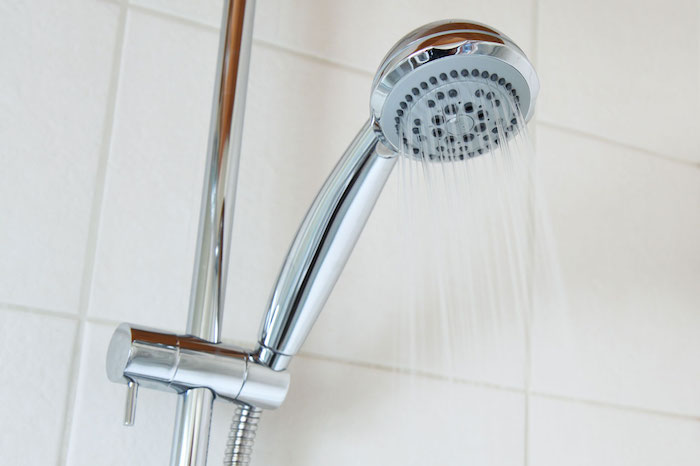We all love to sleep in a soft, snuggly bed after a long day. Sleep can help heal all our aches and pains so we’re ready for the next day. But, unfortunately, sometimes we feel itchy when resting under our sheets. So, the next day, we decide to wash them. However, those sheets are still itchy after washing them. Why? Well, there can be many reasons behind this.
Every day, you shed skin cells. When you go to bed, those dead skin cells become embedded in the bedding itself. They accumulate from time to time, and tiny dust mites are also drawn to those trapped dead skin cells. These mites leave droppings on the sheets, and the droppings also pile up after a while. This will make your sheets itchy.
The perfect solution to this issue is to wash your sheets frequently. Each house has its own cleaning rituals, and most people wash their bed sheets quite regularly. On average, hygiene experts have recommended washing your sheets once a week.
What Can Cause You to Have Itchy Sheets?
Changing the sheets is likely one of the tasks you most despise in life. Most people normally do it on the weekends when cleaning their home in general. However, every now and again, a lot of us forget to change them.
Some of the usual excuses?
- “They don’t look that dirty.”
- “I don’t have time to change them.”
- “I have other things to do.”
- “I’m too lazy to bother changing them.”
And so, you sleep on the same dirty sheets for another week.
This is one of the most serious blunders you can make for your hygiene and, more importantly, your health. When you sleep, your bedding touches your body the entire night, allowing biological fluids to permeate into each layer of cloth. Sweat and other even more nasty things are among these fluids.
Between the layers of fabric, you can detect saliva, sweat, and even tissue samples. Because of the lack of cleanliness, these pollutants can seep into your pillows and mattresses, which are far more difficult to clean.
Your body comes into contact with the bedding, and all of those unsanitary bodily fluids are caught in the sheets. Your dead skin cells, dust mites, tiny insects, and millions of these organisms penetrate into your bedding. They reside in your bed and feed on your dead skin. All of these items accumulate and this will cause your sheets to be itchy.
The Hazards of Not Washing Your Sheets
Nothing is more comfortable than lying in a cozy bed after a busy workday. This is one of the best feelings in the world, but contaminated sheets can cause some trouble for you. There are many drawbacks related to health that are directly associated with sleeping or resting on uncleaned sheets.
Here are a few of them.
Bacterial Growth & Infections
This is one of the most potentially hazardous results of not keeping your sheets clean. Sweat, saliva, dead cells, and other substances that enter the bed cause high amounts of moisture to collect. If the sheets are not washed regularly, the moisture can promote the growth of germs and fungus capable of spreading throughout the body, particularly through wounds.
Dust Mites & Allergies
Tiny insects known as “dust mites” can be found on dirty bed sheets. These micro-organisms consume dead skin cells and can multiply and die between the sheets’ tissues, causing allergies or immunological difficulties in those with low immunity.
Skin Problems
When you touch your skin against dirty bedding, it can cause irritation or eczema. Aside from simply keeping them clean, using sheets composed of sateen and percale are also excellent for managing eczema. Exercise caution, though, as some lotions or solutions used to treat these conditions might worsen them in some cases since they are difficult to absorb and will linger on your sheets, allowing germs to spread.
Breakouts
After becoming quite unclean, bacteria can accumulate in the fibers of your bedding. This can result in a slew of bad outcomes for you and your skin. Acne, whiteheads, and spotty pimples may result due to constant exposure to bacteria, oils, and other bodily substances on uncleaned sheets.
Clogged pores can be caused by embedded debris, dead skin, and germs, too. If you have frequent breakouts, wash your bedding once a week and change your pillowcase regularly. Washing your face before bed may also help you clean your skin and prevent breakouts as well as further dirtying of your pillowcase.
Solutions for Dirty and Itchy Sheets

Experts recommend that you wash your itchy sheets at least once a week with hot water and gentle but effective cleaning solutions. Also, to properly destroy bacteria, change the sheets at least once a week and wash them at a temperature of at least 140°F (60°C).
It is also best to dry them outside because sunlight is incredibly efficient at killing bacteria.
It is advised that the pillows themselves be cleaned at least twice a year. If the tags on your pillows say that you may wash them in a washing machine, do so; otherwise, you can hand-clean them with a cloth soaked in a light detergent. Before putting the pillow covers back on, let them dry in the sun and spray them with disinfectant.
Additionally, you’ll also need to disinfect your mattress. You can spot-clean your mattress with natural, fabric-friendly cleaning solutions or invest in products specifically designed for sanitizing deep into fabrics like what is found on a mattress. A wet vacuum may also be useful in helping you deep clean and fully remove all moisture to dry the mattress properly once you’re done.
While it is critical to wash your sheets regularly, don’t overlook the rest of your bedding in the meantime. Clean your blankets, duvet, and mattress cover with hot water once a month to eradicate any other lingering germs.
Related Questions
Why is my laundry making me itch?
It might be related to your laundry detergent if you get itching on your skin when doing laundry and wearing clothing that’s been cleaned with certain detergents. Laundry detergent chemicals can cause rashes in both toddlers and adults, resulting contact dermatitis, which manifests as a red, itchy rash that can be extensive depending on the severity of the reaction.
If this occurs, you can apply an anti-itch lotion to your skin. You can also try a cool water-soaked damp towel compress if you don’t have anti-itch lotion and want immediate relief. This can soothe irritated skin and relieve discomfort.
Why is my bed making me feel itchy?
There might be several explanations for this. The obvious one is soiled bedding, but there are others as well. Eczema is another possibility, especially in the summer or if you reside in a warm location. You would be much more likely to sweat in a hotter bed, especially one that has memory foam and can cause more body heat to be stored. While you sleep, your body overheats. This, in turn, aggravates eczema, causing itching and making you feel uncomfortable.
How do I know if my bed has dust mites?
Because of their tiny size, dust mites can be difficult to detect. Dust mites are tiny, spider-like organisms and can only be seen under a microscope. They survive by feeding on dead skin cells.
The following symptoms may occur if you are allergic to dust mites: sneezing, coughing, a runny or stuffy nose, itchy or watery eyes, red or itchy skin, and an irritated throat.
Having an allergic reaction to dust mites may also provoke the symptoms of asthma depending on the degree of your dust mite allergies.
What type of sheets are best for itchy skin?
Normal, standard bed sheets can irritate people with sensitive skin, and they frequently experience red patches as a result of this irritation and sensitivity. The best option for individuals with this issue would be to get bed sheets made of high-quality cotton.
High-quality cotton sheets are an excellent alternative for reducing skin irritation resulting from eczema or other sensitive skin problems. Cotton is a natural fabric, very soft, and is naturally hypoallergenic.


